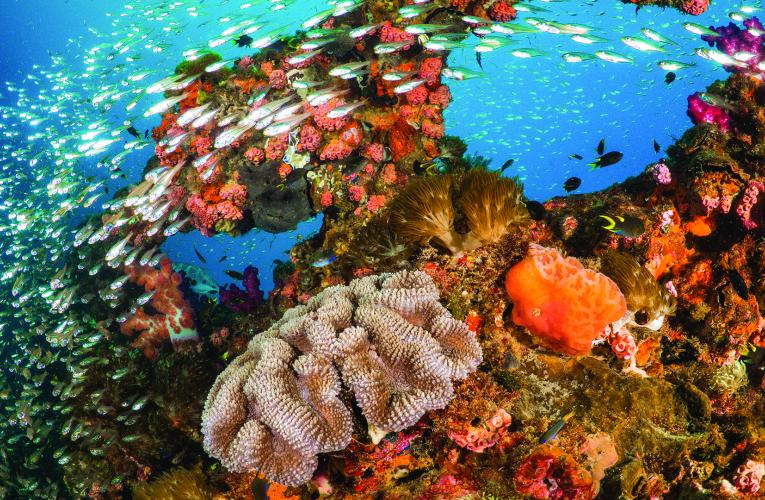Tropical fish are taking up residence in shipwrecks and other sunken structures off the North Carolina coast. This pattern may continue or even accelerate in coming years given predictions of warming oceans under climate change, a study co-led by Nicholas School scientists suggests.
“Globally, there is broad evidence that many tropical fish species are shifting their ranges poleward and to deeper waters in response to changing ocean conditions, and what we see on these reefs seems to fit that pattern,” said Avery B. Paxton, a visiting scholar at the Duke University Marine Laboratory.
One of the most surprising findings of the study is the fishes’ strong preference for hanging out on human-made structures versus natural rocky reefs found nearby.
This preference suggests that the human-made structures—which are already commonly found up and down the East Coast and in other waters worldwide—are acting as underwater corridors that the fish use to reach the habitats they need to survive, said Paxton.
She and her colleagues published their peer-reviewed paper in Nature Communications Biology.
The scuba-diving scientists collected population and species counts at 30 artificial and natural reefs off the N.C. coast between 2013 and 2015. To track seasonal differences in fish populations, most of the reefs were visited four times a year.
Analysis of the data confirmed that the number and diversity of tropical and subtropical fish on deep artificial reefs was far greater than on nearby natural reefs. The depth of the artificial reef mattered hugely, Paxton noted.
“We didn’t see these patterns on artificial reefs at shallow or intermediate depths, we only saw them on deep reefs, located between 80 to 115 feet below the surface, where water temperatures often experience less seasonal change,” she said.
Brian Silliman, Rachel Carson Associate Professor of Marine Conservation Biology, co-authored the study.
Funding for the research came from the Bureau of Ocean Energy Management, the N.C. Coastal Recreational Fishing License Grant Program, a National Science Foundation Graduate Research Fellowship, a P.E.O. Scholar Award, and the Lenfest Oceans Program.

